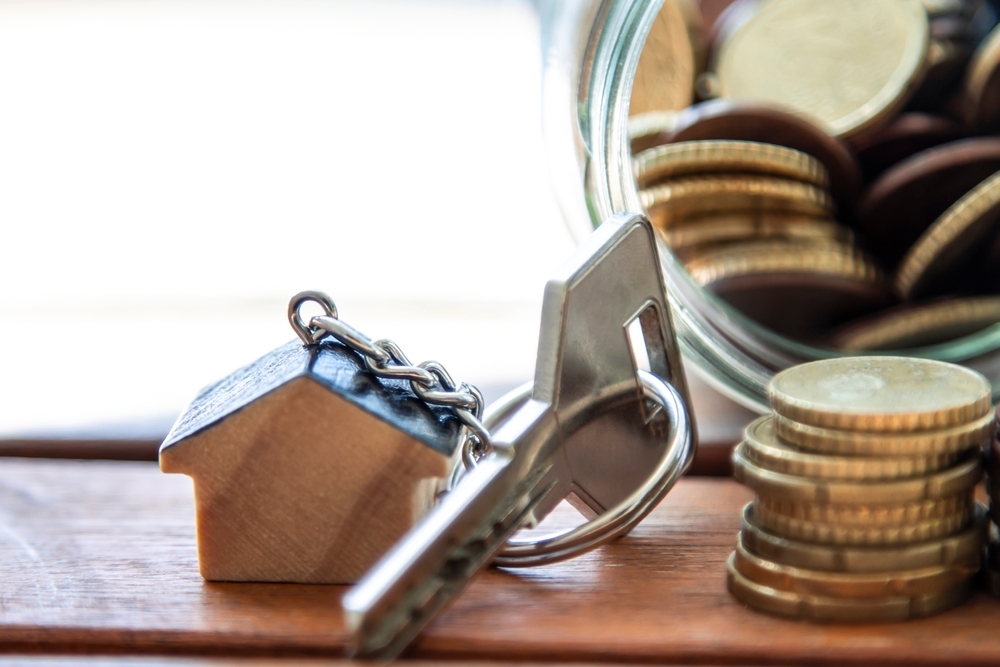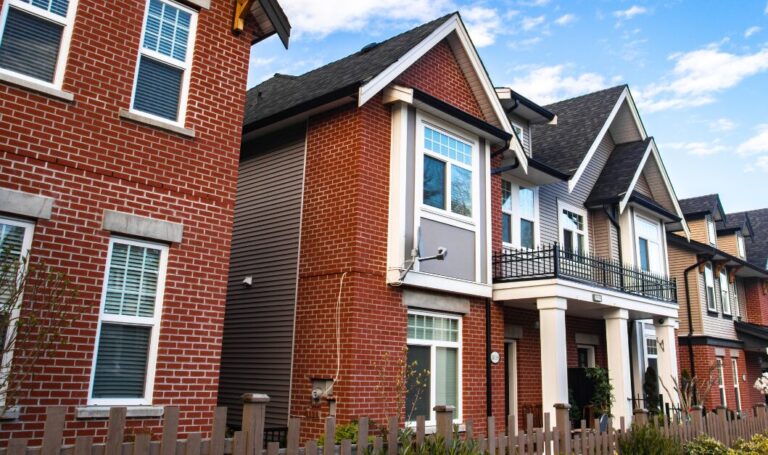Properly preparing your finances when moving is more crucial now than it’s ever been.
In this latest guide, we’ve listed all the costs you’ll need to consider and provided a host of great tips on how to plan the financials for your move.
Costs you can expect when moving home
1. Stamp duty
You must pay Stamp Duty Land Tax (SDLT) if you buy a property or land over a certain price in England and Northern Ireland.
The tax is different if the property or land is in:
- Scotland – pay Land and Buildings Transaction Tax
- Wales – pay Land Transaction Tax if the sale was completed on or after 1 April 2018
The threshold is where SDLT starts to apply. If you buy a property for less than the threshold, there’s no SDLT to pay.
SDLT starts to apply when you buy property that costs:
- £125,000 for residential properties
- £300,000 for first-time buyers buying a residential property worth £500,000 or less
2. Deposit
Your deposit is likely to be one of the biggest up-front costs you’ll face when buying.
In most cases, you’ll need to provide at least 5% of your property’s purchase price as a deposit.
But the more you can put down, the more attractive the mortgage rate you’re likely to enjoy.
On the day you exchange contracts, all or part of your deposit will act as security against your purchase as well as being the portion of your property you’re buying outright.
If you’ve sold or are selling an existing home, you may be using equity from that property as your deposit for your new purchase.
As this money isn’t available until your sale is completed, you may have to cover your security deposit, which is usually 10%.
Alternatively, your solicitor may be able to use your buyer’s deposit as security.
If you’re a first-time buyer, the money you’ve saved as your deposit can be used as exchange security and then passed to the seller upon completion.
3. Valuation fee
Your mortgage lender will carry out their own valuation of the property you’re buying, and you may need to pay a fee for this.
This valuation is so your lender can be satisfied that your property is worth the amount you’re borrowing as a mortgage.
You can expect to pay between £150 and £1,500 for your lender’s valuation, while some lenders may offer free valuations.
If you do need to pay, the fee will be due up front.
4. Other mortgage fees
As well as a valuation fee, your lender may also charge you an arrangement fee for organising your mortgage loan.
You may be able to add this fee to your loan rather than pay it up front, but doing this means you’ll pay interest on the amount.
Arrangement fees tend to be more expensive for more attractive interest rates or deals, meaning you could have to pay up to £2,000.
However, many mortgage products come with no arrangement fee at all.
5. Survey fees
Having a survey can be a good way to protect yourself from unwanted surprises when buying your next home.
A survey will tell you more about the property’s condition, meaning you’ll be able to make a sound decision on whether or not to proceed with your purchase.
Survey fees vary depending on the level of survey you choose and the size of the property, but you can expect to pay between £200 and £700 up front to cover this.
6. Solicitor or conveyancing fees
Your solicitor or conveyancer may require you to pay a partial fee up front for their legal services.
This often covers the cost of things like searches and money laundering checks, which are known as disbursements.
Your solicitor’s main fee will usually be collected by them once you’ve completed your purchase.
7. Buildings insurance
When buying with a mortgage, it’s highly likely you’ll need to have a buildings insurance policy in place at the point of exchanging contracts.
This is likely to be a stipulation of your lender.
Your property’s condition, type, and location will all affect the cost of your policy, but it’s important to ensure you have adequate cover while also shopping around for a good deal.
8. Removal costs
If you book a company to take care of moving your belongings into your new home, you may have to pay for the service up front.
The cost of removals may depend on factors like the distance between the two properties and the size of the vehicle required to complete the move.
Any access issues at the properties may also mean a higher cost.
Costs payable after you’ve moved
1. Estate agent fees
If you’re selling an existing property, your estate agent’s commission will be due once the sale is completed.
Your solicitor or conveyancer will normally arrange for this to be paid from the proceeds of your sale, but you may also be able to pay yourself separately.
2. Ongoing running costs
Utility bills will form many of your ongoing costs once you’re settled into your new home, including:
- Gas and electricity
- Sewerage
- Water
- Broadband, TV package and phone
You may also need to pay council tax, although how much you pay will vary depending on which band your property sits in.
3. Leasehold costs
Leasehold properties like flats and apartments often come with additional costs you’ll need to factor into your ongoing budget.
These costs may include a ground rent charge to the building’s freeholder, as well as a maintenance payment or sink fund payment for work on common areas.
4. Mail redirection
Remembering to inform key people of your new address can often take a back seat when moving.
But mail redirection can help ensure all post sent to your old address instead lands on the doormat at your new home.
Mail redirection costs between £34 and £69 and can be set up for three months or up to a year.
How to budget your move effectively
1. Secure the right mortgage
With interest rates rising and the cost of living increasing, it’s now more important than ever to ensure your mortgage works for you and your circumstances.
The best approach is usually to speak with an independent broker, who’ll be able to advise you.
Brokers also often have access to more of the mortgage market, meaning you may be able to secure a deal not available to you directly through a lender.
2. Avoid big changes to your income and limit credit applications
When applying for a mortgage, it’s important to avoid major changes to your income or applications for credit in the lead up to your application.
Applying for credit can affect your credit score, and lots of applications in a short space of time could be a concern for your lender.
Remember to check your credit score and file before making your application, and make any changes to information that’s incorrect.
You should also close down any cards you no longer use, such as credit cards and store accounts.
3. Save enough to cover all up-front costs
By budgeting for your move and saving enough cash to pay for all of your up-front costs, you can avoid any nasty surprises as your purchase progresses.
As well as setting yourself a maximum purchase price, factor in your deposit, stamp duty and other up-front costs such as solicitor and mortgage lender fees, and only start to progress with your property search once you have your budget saved.
Having a small contingency fund can also help, just in case there are any unexpected costs along the way.
4. Factor in insurance
One of the most common costs buyers forget to budget for up front is buildings insurance.
But if you’re buying with a mortgage, your lender may stipulate that your policy is in place at the point of contract exchange.
Make sure you shop around for a good deal that provides you with enough cover and factor this into your moving budget.
5. Understand your new property’s energy efficiency
It’s never been more important to fully understand a property’s energy efficiency before you buy.
Every property that goes on the market must have an Energy Performance Certificate (EPC) for buyers to view.
The EPC will tell you:
- How energy efficient the property is
- What the projected annual running costs for the property will be
- Some of the work you could do to make the property cheaper to run
The information on an EPC can help you decide if a property is affordable for you to run or if you should look elsewhere.
6. Be prepared to switch suppliers
It’s likely your seller’s energy supplier will place you on a ‘deemed contract’ when you move in.
This could cost you more, as it’s likely they’ll place you on their standard tariff.
Speak to your supplier and find out what deals they can offer you, and don’t be afraid to switch if you need to, as this could save you substantial money.
7. Cut back on spending while you settle into your new budget
Take some time to adjust to your new property’s running costs once you’ve moved in.
By spending a few months looking at your household budget and cutting back on more general spending, you’ll be able to get a grip on how much your home costs to run and therefore, how much disposable income you have left.
8. Sell the things you no longer need
Moving is often a great opportunity to declutter and rid yourself of items you no longer need.
By selling those items at places like car boot sales or online, you can also boost your moving budget with the proceeds.




